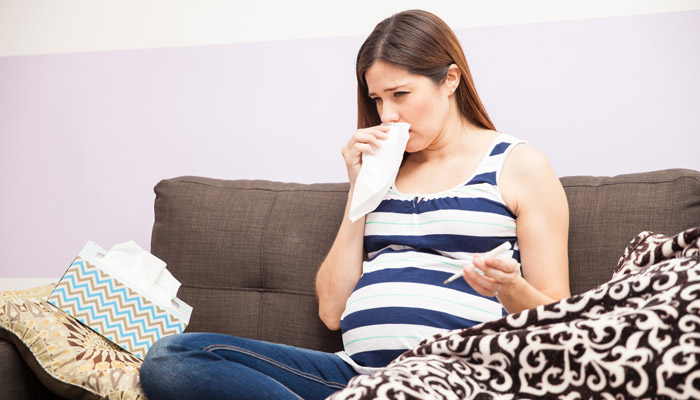
Guidelines to Follow When Sick & Pregnant
When you are pregnant, it is normal for your body’s immune system to become weak, which increases your likelihood of contracting illnesses such as the common cold. While getting sick when you are pregnant can be an unsettling experience, the good news is that it is relatively common. Review the following guidelines to grasp a clear understanding of what you can do to alleviate your symptoms, and when you should contact your doctor.
If you become sick when you’re pregnant, take the following primary steps to restore your health.
- Rest: Getting enough sleep enhances the functioning of your body’s immune system, which can decrease the duration of your illness.
- Drink Fluids: Staying hydrated is imperative to your body’s functioning, and fluids will also help cleanse your body from toxins.
- Consume Your Vitamins: Taking vitamins can give your body the important nutrients to assist in strengthening your immune system.
While these steps won’t automatically alleviate your symptoms, they can provide your body with the tools it needs to fight the illness and lessen the time span you are sick.
There are also some natural ways to relieve symptoms of the common cold and a sore throat, such as:
- Use a humidifier in your home, elevate your head when laying down, or apply nasal strips to lessen congestion.
- Suck on small pieces of ice, drink warm herbal tea with honey, or gargle warm salt water to soothe a sore throat.
You can also consult your pharmacist or doctor regarding what medications you can take to handle your symptoms. However, it is crucial for you to be mindful of the labels and talk to your doctor before taking any medication because there are several medications that are not safe to take while pregnant.
When to Call Your Doctor
Your doctor is there to help ensure both you and your baby are healthy throughout your pregnancy. If you have questions when you are sick and pregnant, don’t be reluctant to reach out to your physician for support. It is imperative to contact your doctor if your symptoms persist or become worse after a few days, or if they cause you to skip meals or lose rest. It is also essential to contact your doctor if your temperature reaches 102° Fahrenheit or above, or if you begin to cough up mucus or experience chest pain, as these may be signs of a fever or an infection requiring an antibiotic.
